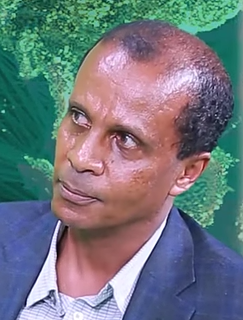A Quote by Vladimir Lenin
While the State exists there can be no freedom; when there is freedom there will be no State.
Related Quotes
All the worth which the human being possesses all spiritual reality, he possesses only through the State... For Truth is the Unity of the universal and subjective Will; and the Universal is to be found in the State, in its laws, its universal and rational arrangements. The State is the Divine Idea as it exists on Earth. We have in it, therefore, the object of History in a more definite shape than before; that in which Freedom obtains objectivity...
People’s State, is a yoke, on the one hand giving rise to despotism and on the other to slavery. They say that such a yoke – dictatorship is a transitional step towards achieving full freedom for the people: anarchism or freedom is the aim, while state and dictatorship is the means, and so, in order to free the masses of people, they have first to be enslaved!
The education we all receive from the State, at school and after, has so warped our minds that the very notion of freedom ends up by being lost, and disguised in servitude. It is a sad sight to see those who believe themselves to be revolutionaries unleashing their hatred on the anarchist just because his views on freedom go beyond their petty and narrow concepts of freedom learned in the State school.
Freedom is a state of mind, I said wondering where I'd heard it before, not a state of being. We are all slaves to gravity and morality and the vicissitudes of nature. Our genes govern us much more than we'd like to think. Our bodies can not know absolute freedom but our minds can, can at least try.
In the West, there's a myth that freedom means free expression-that to follow all desires wherever they take one is true freedom. In fact, as one serves the mind, one sees that following desires, attractions, and repulsions is not at all freedom, but is a kind of bondage. A mind filled with desires and grasping inevitably entails great suffering. Freedom is not to be gained through the ability to perform certain external actions. True freedom is an inward state of being. Once it is attained, no situation in the world can bind one or limit one's freedom.
The Magna Carta is an early reminder of the crucial difference between freedom and liberty. Liberty is freedom that is unique to humans, it is guaranteed by law. All animals are free, but in a system of humans total freedom is anarchy. Humans have thrived by letting a dominant authority regulate freedom. Liberty is a freedom that the authority has granted or has been persuaded to grant. For centuries, the state and the people have negotiated, peacefully and violently.
All manners of freedom, including freedom of expression, freedom of conscious, freedom of thought...it accepts tolerance. But it is not an atheist society. Religion is the private affair of an individual...be present in the public domain, but state has to be clearly separated from religion. When I'm speaking, I'm speaking only for myself. At the same time, I know that these ideas have wide support among the Iranian population.
The only freedom that is of enduring importance is the freedom of intelligence, that is to say, freedom of observation and of judgment, exercised in behalf of purposes that are intrinsically worth while. The commonest mistake made about freedom is, I think, to identify it with freedom of movement, or, with the external or physical side of activity.







































